Abstract
The relative effectiveness of two methods of programming DRO schedules of reinforcement was examined in two experiments. In these two methods, reinforcement is delivered if inappropriate responding is not occurring (a) at the end of an interval (momentary DRO), or (b) throughout the entire interval (whole-interval DRO). In Experiment 1, the effects of these schedules on disruptive responding of three retarded students were assessed in a multiple-baseline design. For two students, the momentary schedule occurred first and was ineffective, whereas the whole interval that followed was effective; for the third student, the whole-interval schedule occurred first and was effective, and reduced responding was maintained under the momentary schedule. In Experiment 2, baseline and the two DRO schedules were each presented in random order each day to one student in an alternating treatments design. The momentary DRO schedule reduced responding, but the whole-interval schedule was more effective.
Full text
PDF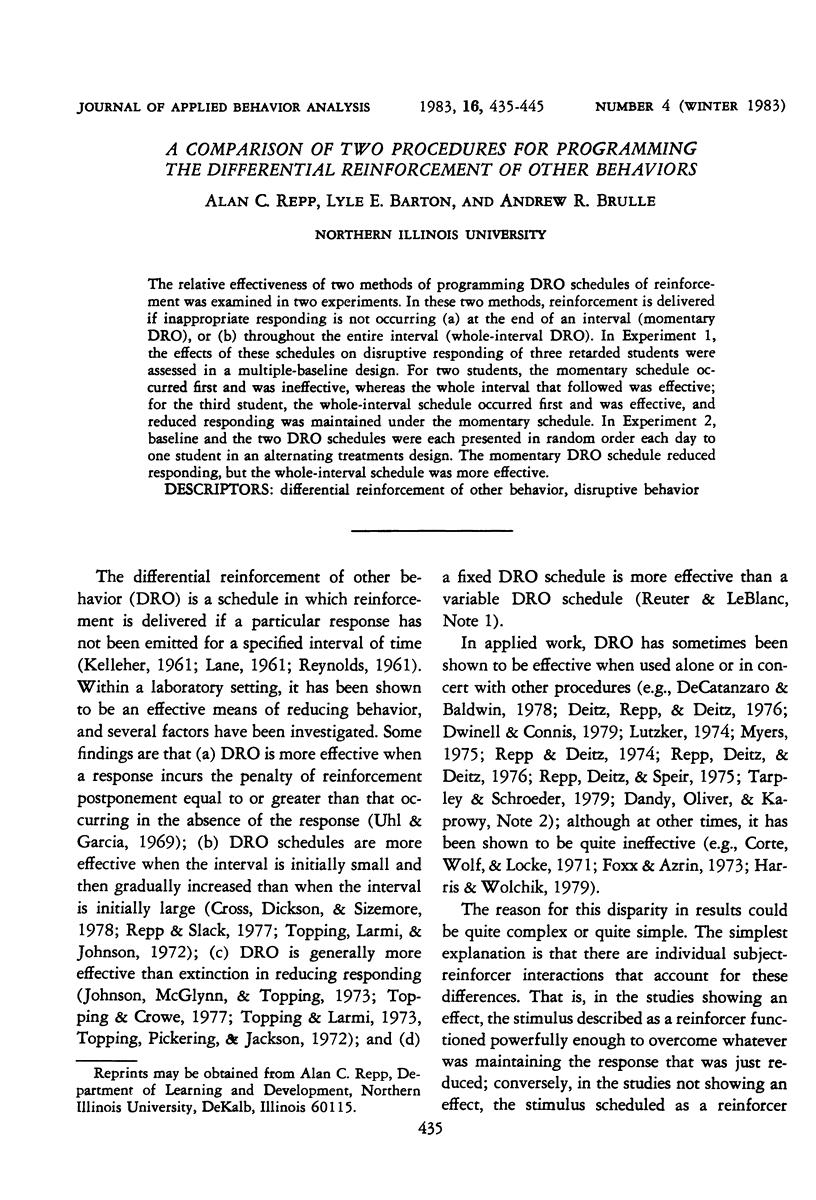
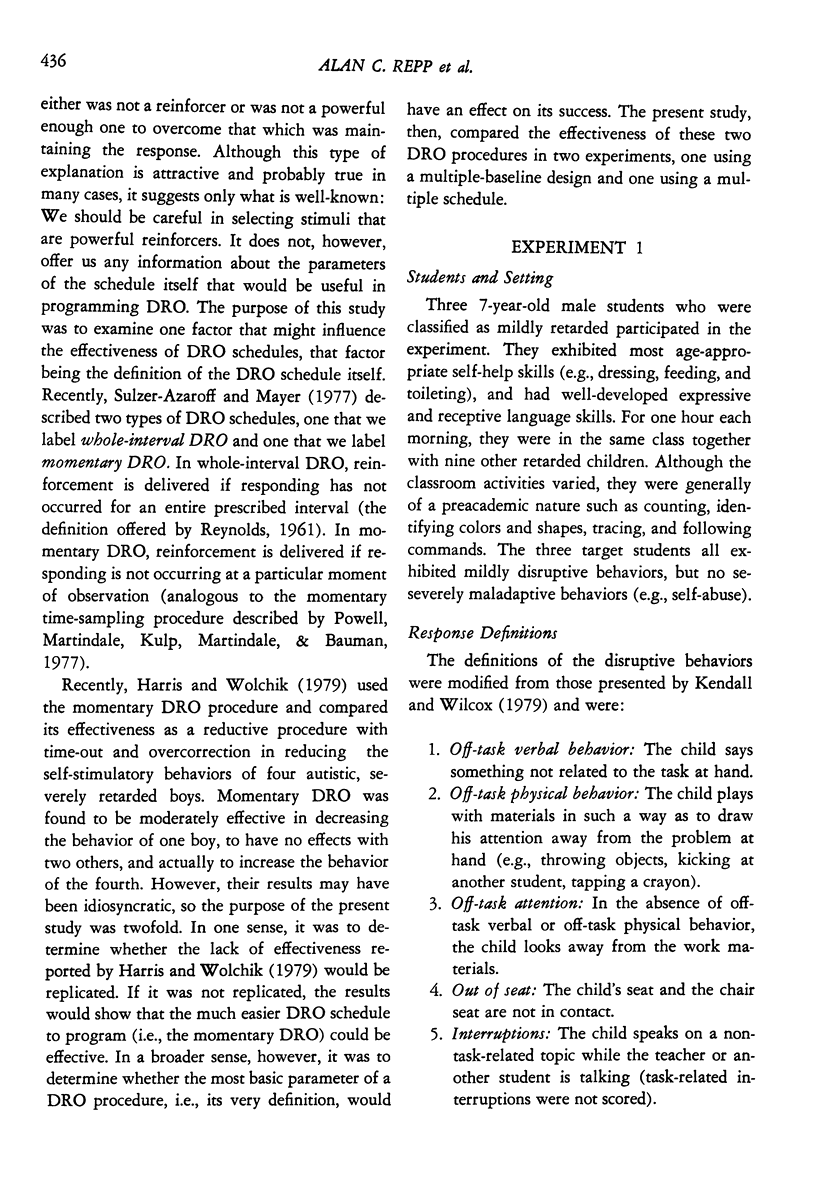
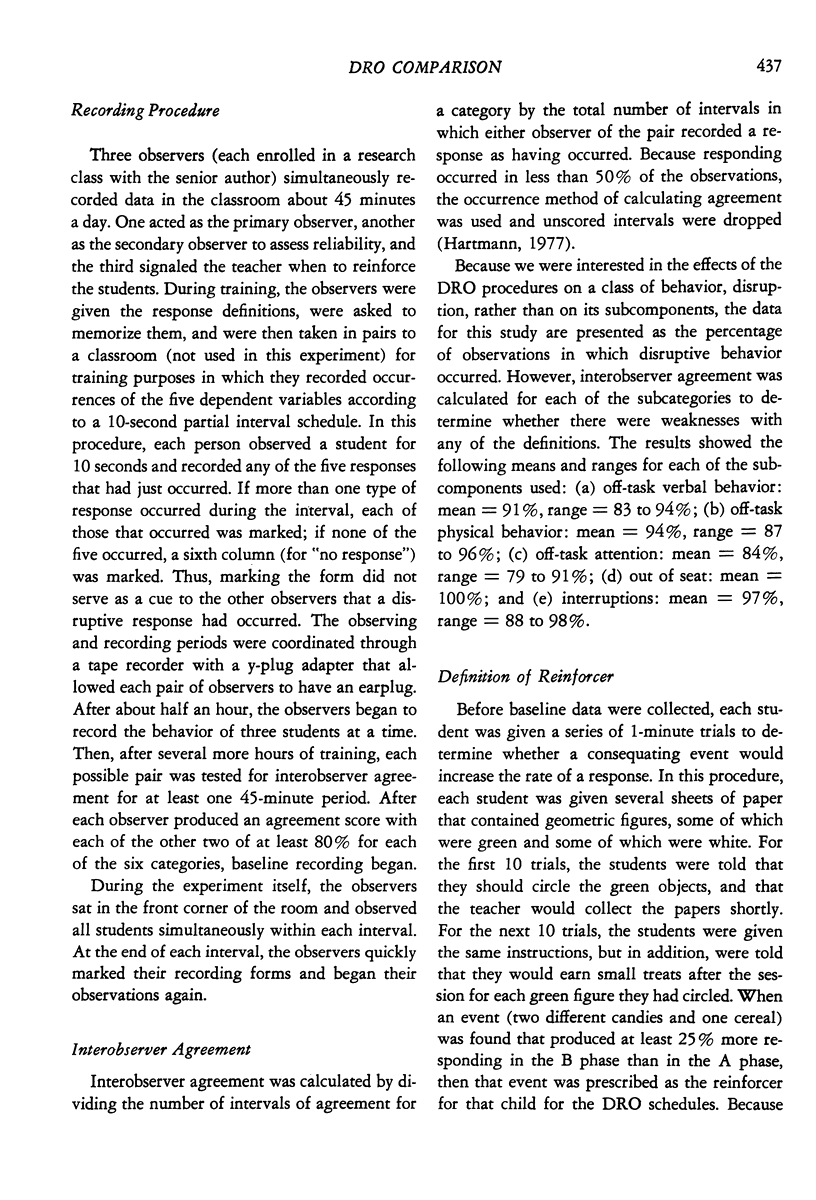
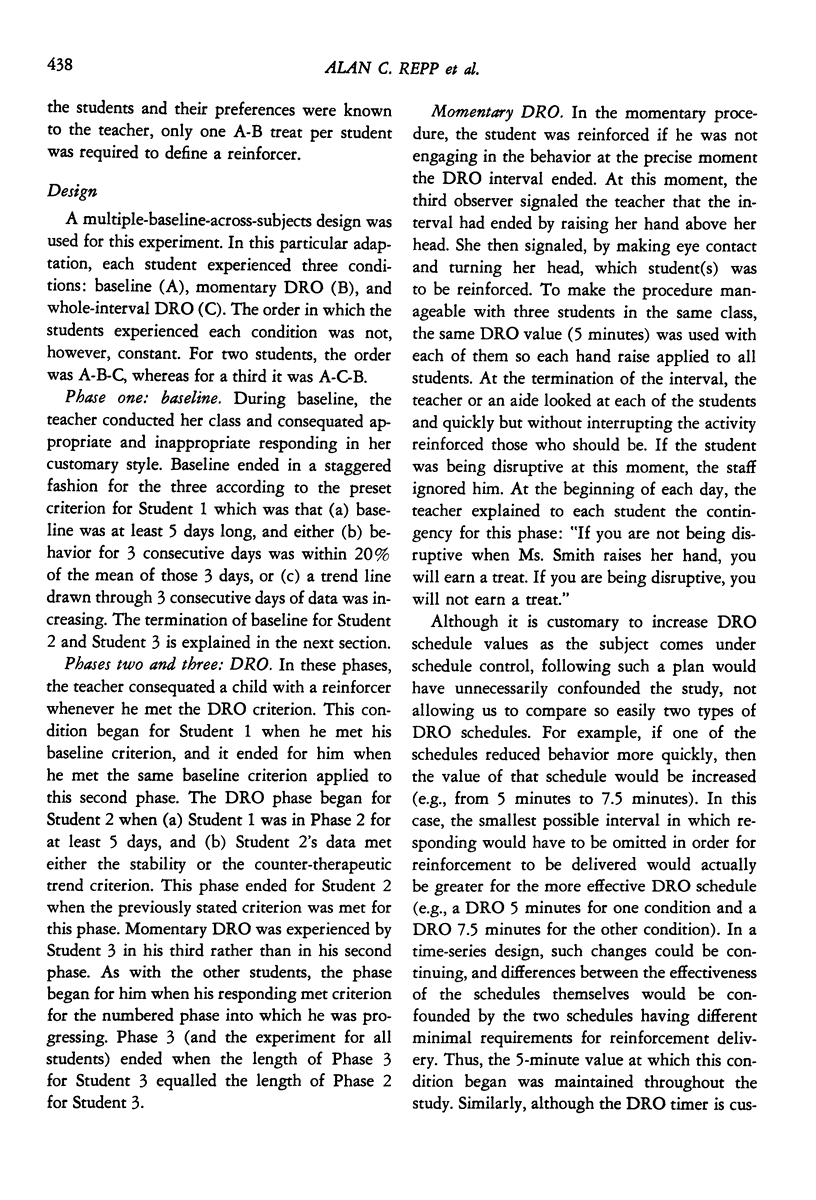
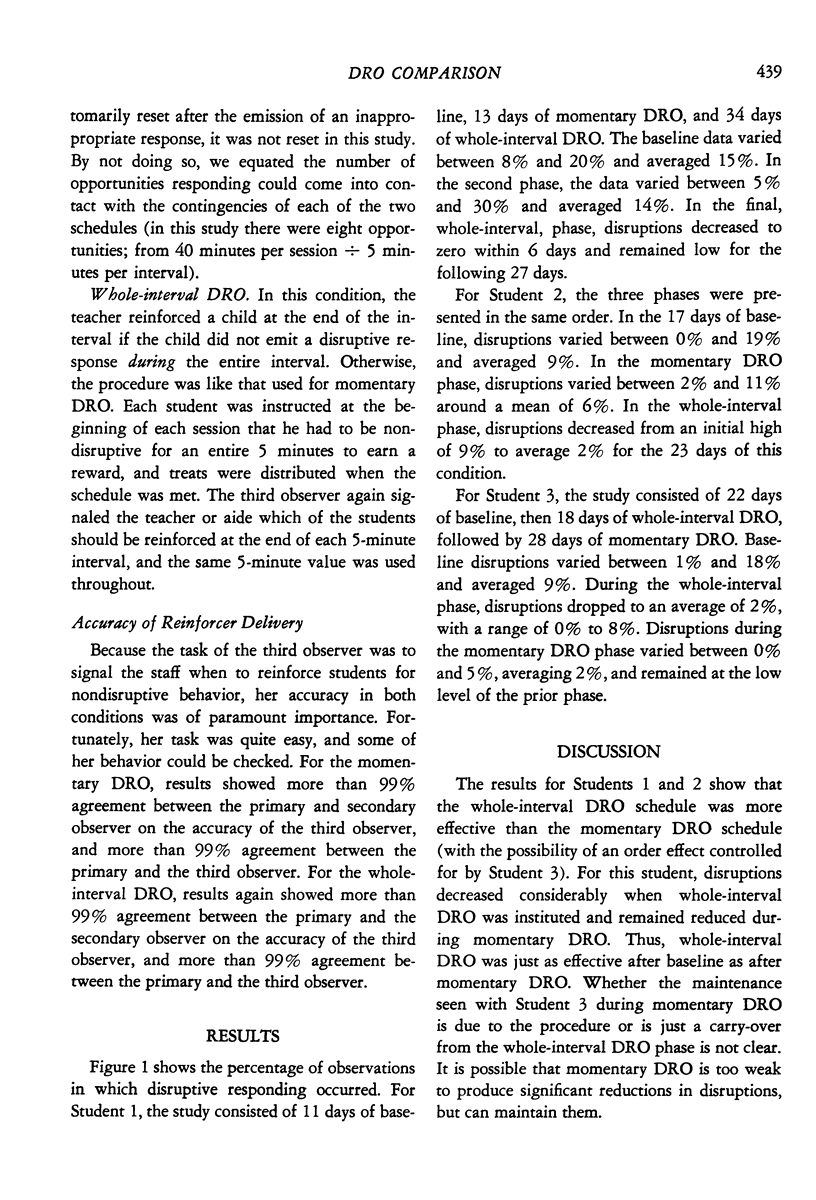
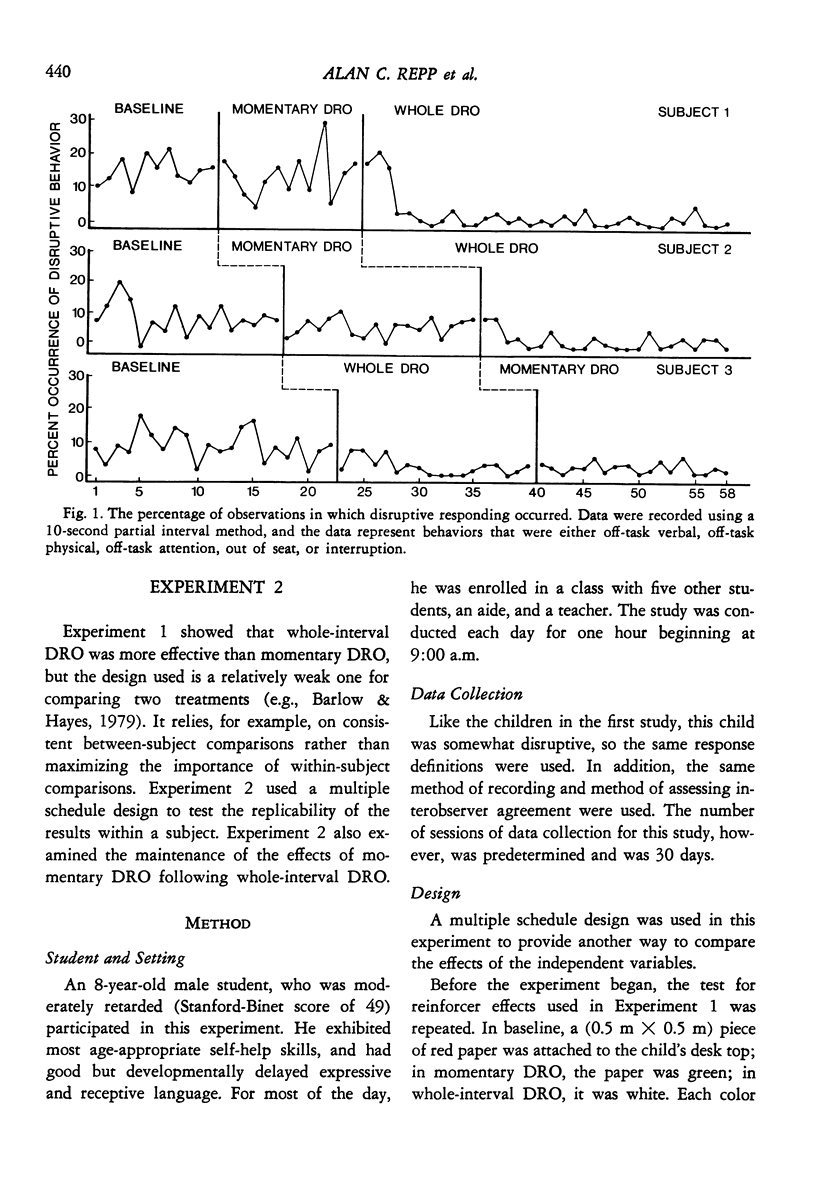
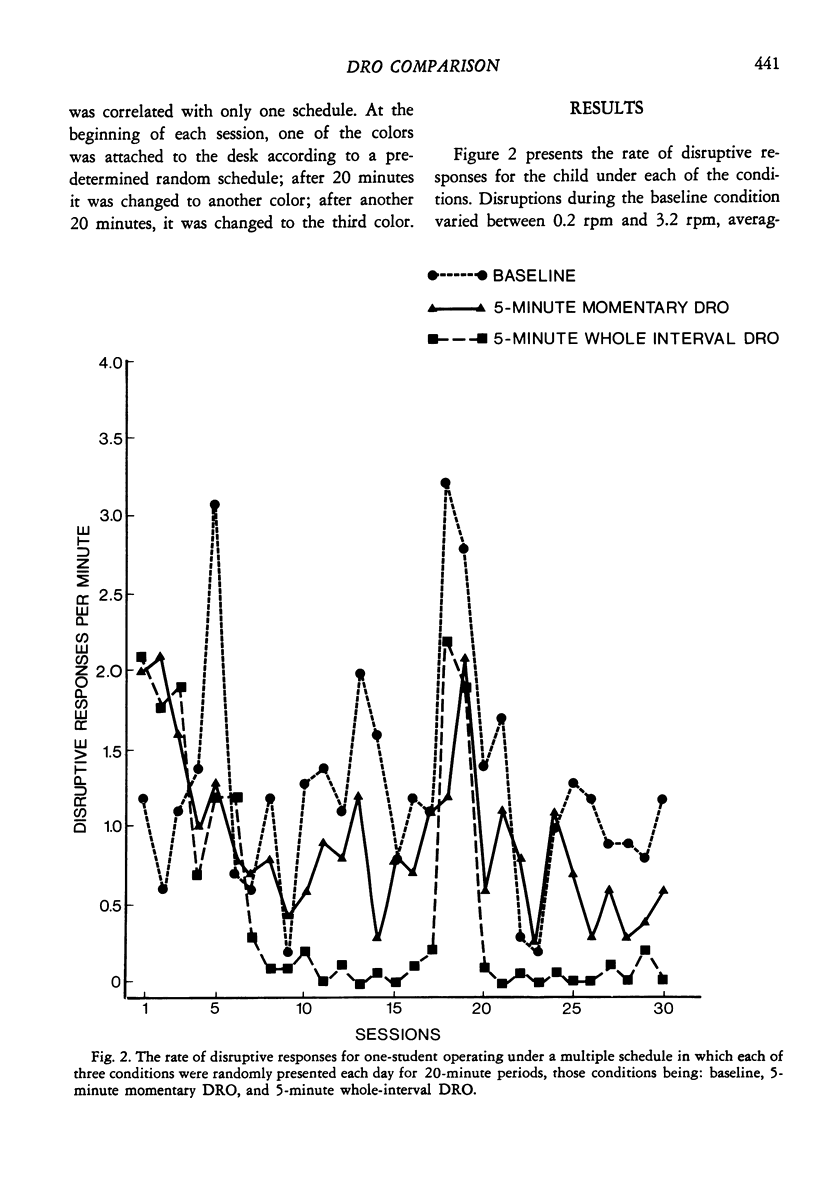
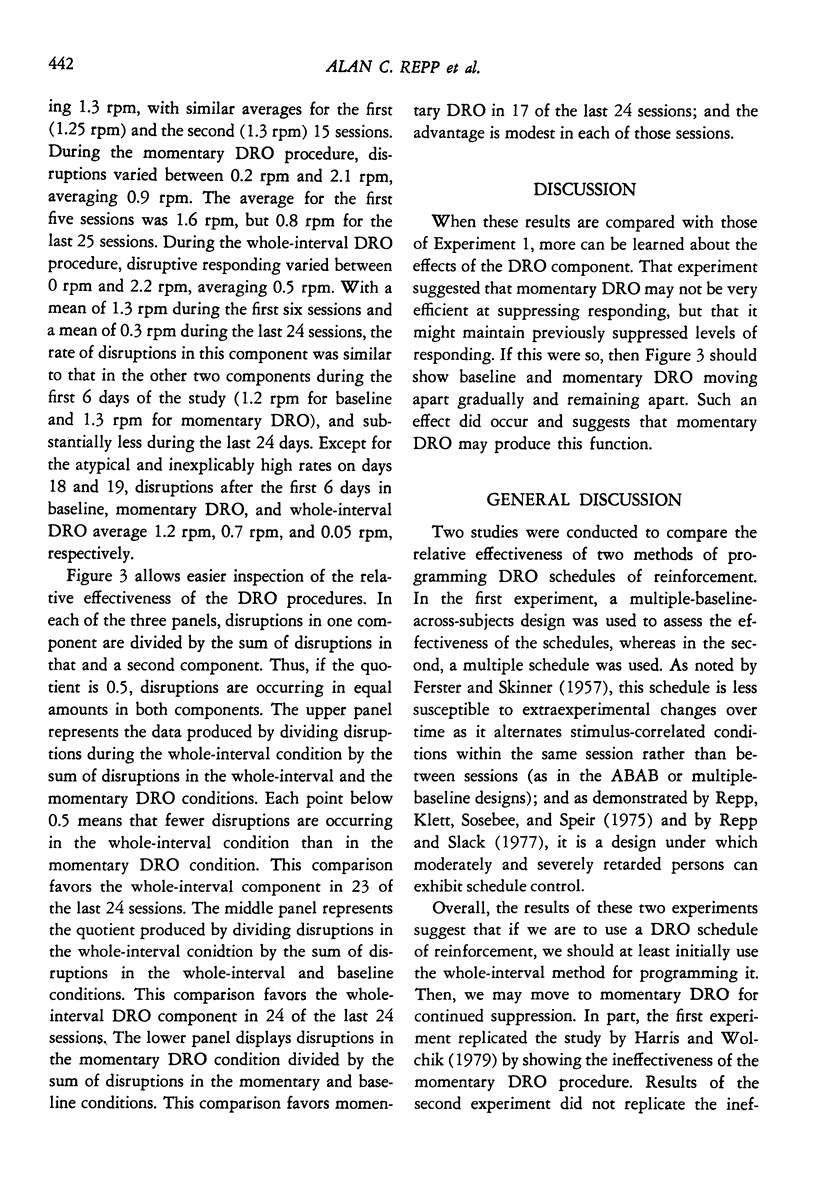
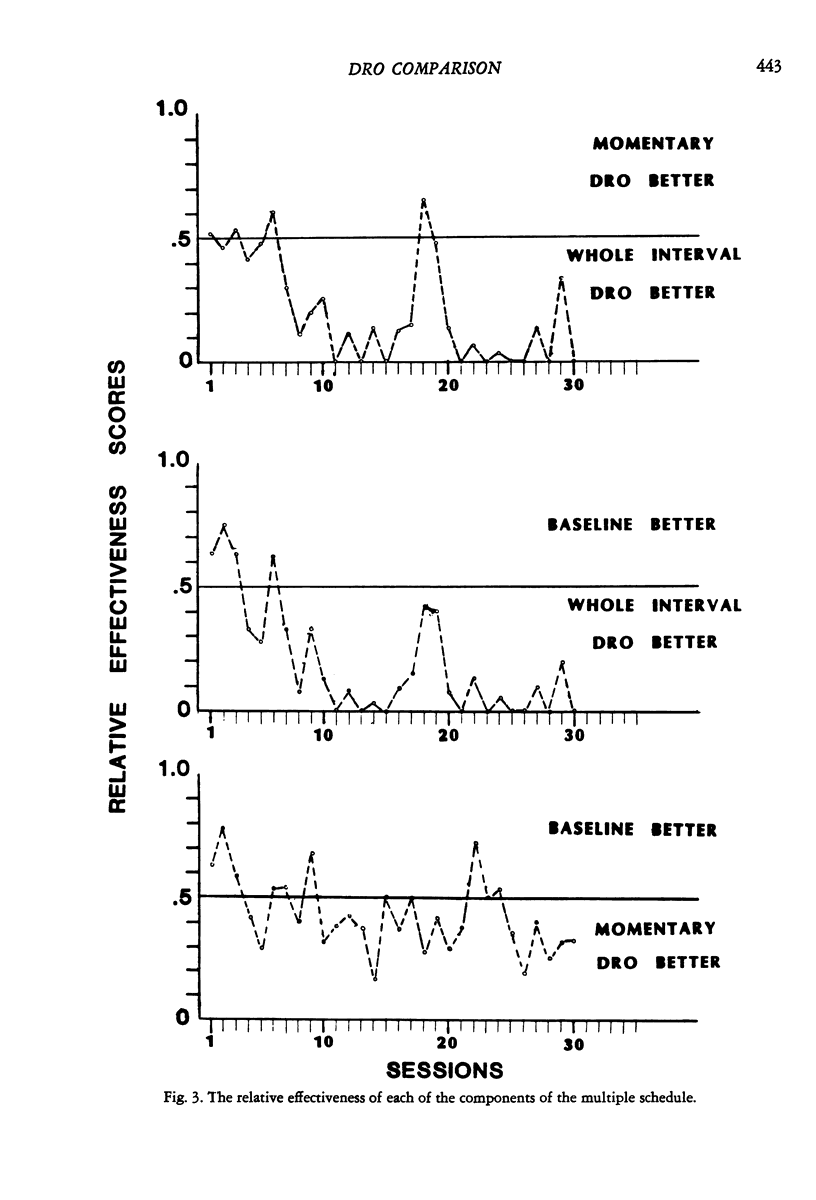
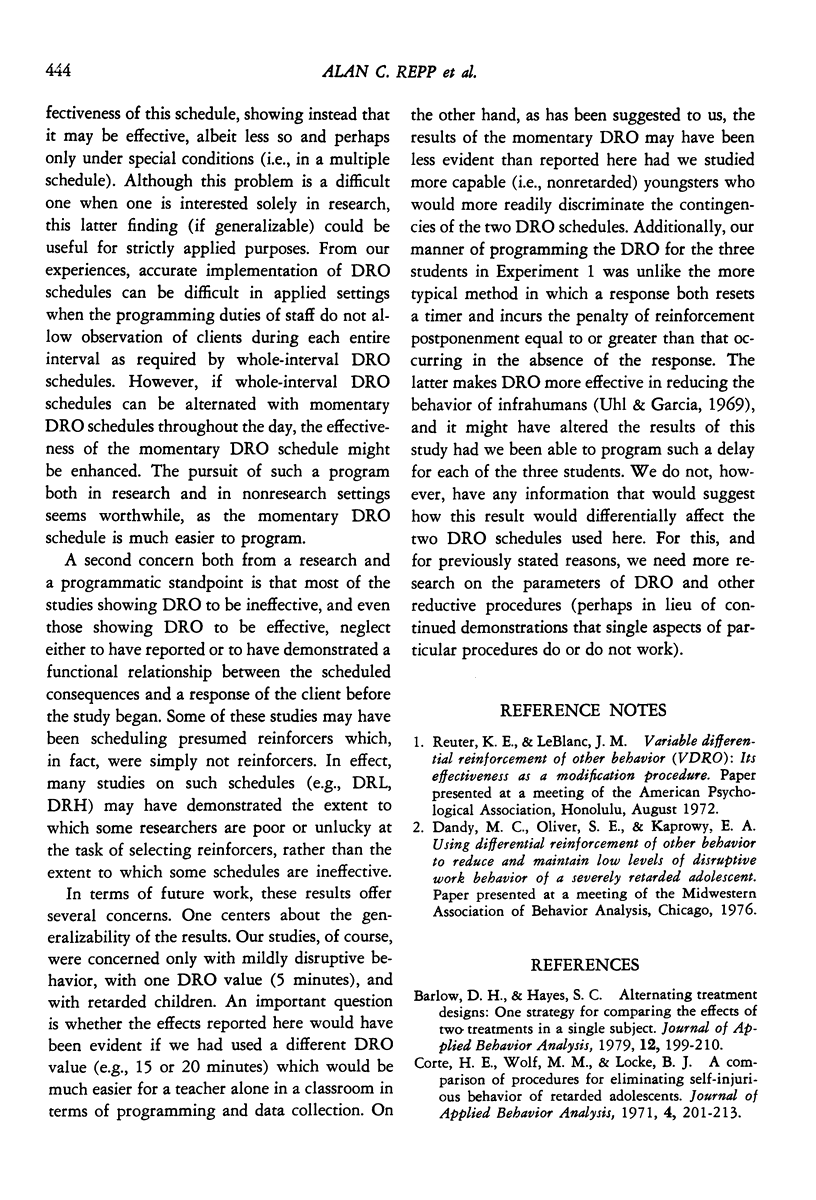
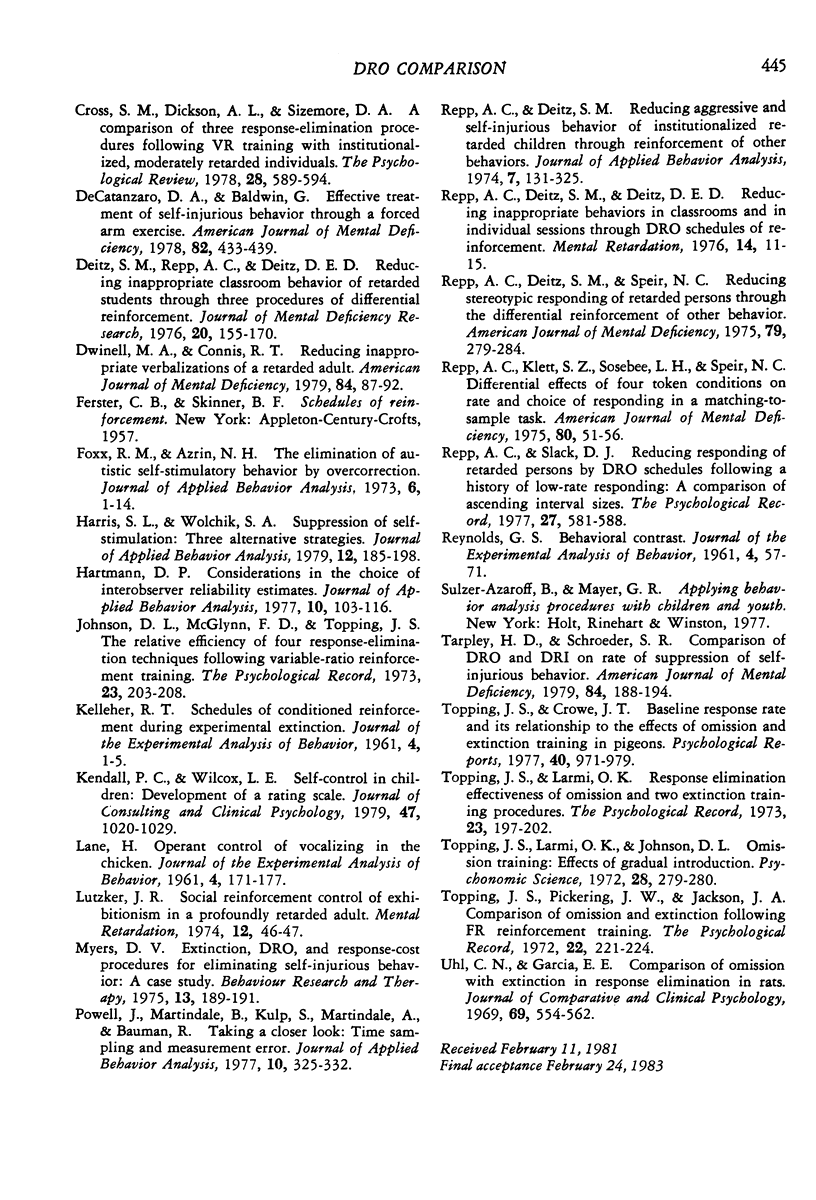
Selected References
These references are in PubMed. This may not be the complete list of references from this article.
- Corte H. E., Wolf M. M., Locke B. J. A comparison of procedures for eliminating self-injurious behavior of retarded adolescents. J Appl Behav Anal. 1971 Fall;4(3):201–213. doi: 10.1901/jaba.1971.4-201. [DOI] [PMC free article] [PubMed] [Google Scholar]
- DeCatanzaro D. A., Baldwin G. Effective treatment of self-injurious behavior through a forced arm exercise. Am J Ment Defic. 1978 Mar;82(5):433–439. [PubMed] [Google Scholar]
- Deitz S. M., Repp A. C., Deitz D. E. Reducing inappropriate classroom behaviour of retarded students through three procedures of differential reinforcement. J Ment Defic Res. 1976 Sep;20(3):155–170. doi: 10.1111/j.1365-2788.1976.tb00940.x. [DOI] [PubMed] [Google Scholar]
- Dwinell M. A., Connis R. T. Reducing inappropriate verbalizations of a retarded adult. Am J Ment Defic. 1979 Jul;84(1):87–92. [PubMed] [Google Scholar]
- Foxx R. M., Azrin N. H. The elimination of autistic self-stimulatory behavior by overcorrection. J Appl Behav Anal. 1973 Spring;6(1):1–14. doi: 10.1901/jaba.1973.6-1. [DOI] [PMC free article] [PubMed] [Google Scholar]
- Harris S. L., Wolchik S. A. Suppression of self-stimulation: three alternative strategies. J Appl Behav Anal. 1979 Summer;12(2):185–198. doi: 10.1901/jaba.1979.12-185. [DOI] [PMC free article] [PubMed] [Google Scholar]
- Hartmann D. P. Considerations in the choice of interobserver reliability estimates. J Appl Behav Anal. 1977 Spring;10(1):103–116. doi: 10.1901/jaba.1977.10-103. [DOI] [PMC free article] [PubMed] [Google Scholar]
- KELLEHER R. T. Schedules of conditioned reinforcement during experimental extinction. J Exp Anal Behav. 1961 Jan;4:1–5. doi: 10.1901/jeab.1961.4-1. [DOI] [PMC free article] [PubMed] [Google Scholar]
- Kendall P. C., Wilcox L. E. Self-control in children: development of a rating scale. J Consult Clin Psychol. 1979 Dec;47(6):1020–1029. doi: 10.1037//0022-006x.47.6.1020. [DOI] [PubMed] [Google Scholar]
- Myers D. V. Extinction, DRO, and response-cost procedures for eliminating self-injurious behavior: a case study. Behav Res Ther. 1975 Jun;13(2-3):189–191. doi: 10.1016/0005-7967(75)90016-9. [DOI] [PubMed] [Google Scholar]
- Powell J., Martindale B., Kulp S., Martindale A., Bauman R. Taking a closer look: time sampling and measurement error. J Appl Behav Anal. 1977 Summer;10(2):325–332. doi: 10.1901/jaba.1977.10-325. [DOI] [PMC free article] [PubMed] [Google Scholar]
- REYNOLDS G. S. Behavioral contrast. J Exp Anal Behav. 1961 Jan;4:57–71. doi: 10.1901/jeab.1961.4-57. [DOI] [PMC free article] [PubMed] [Google Scholar]
- Repp A. C., Deitz S. M., Deitz D. E. Reducing inappropriate behaviors in classrooms and in individual sessions through DRO schedules of reinforcement. Ment Retard. 1976 Feb;14(1):11–15. [PubMed] [Google Scholar]
- Repp A. C., Deitz S. M. Reducing aggressive and self-injurious behavior of institutionalized retarded children through reinforcement of other behaviors. J Appl Behav Anal. 1974 Summer;7(2):313–325. doi: 10.1901/jaba.1974.7-313. [DOI] [PMC free article] [PubMed] [Google Scholar]
- Repp A. C., Klett S. Z., Sosebee L. H., Speir N. C. Differential effects of four token conditions on rate and choice of responding in a matching-to-sample task. Am J Ment Defic. 1975 Jul;80(1):51–56. [PubMed] [Google Scholar]
- Tarpley H. D., Schroeder S. R. Comparison of DRO and DRI on rate of suppression of self-injurious behavior. Am J Ment Defic. 1979 Sep;84(2):188–194. [PubMed] [Google Scholar]



